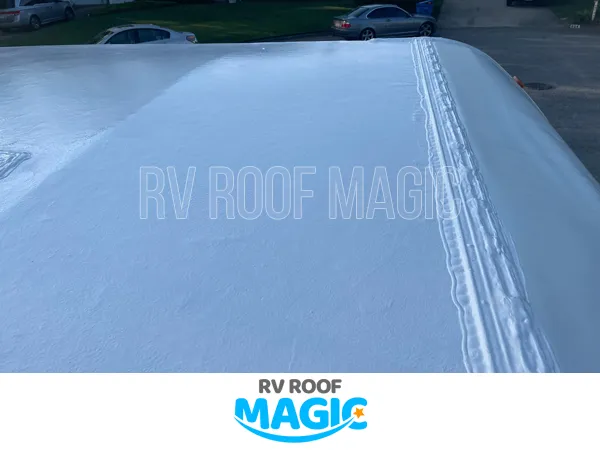Every RV is different and will have different care needs. If you’re trying to prepare yourself for success with RV roof care and maintenance, the first thing that you need to do is talk to the dealership or manufacturer of your RV and find out what the expected maintenance and care is going to be like.
Fortunately, these days, RVs and their roofs are a lot more durable and can handle a lot of use before they need maintenance or repair. It’s still valuable to learn how to take care of your own RV, of course, so here are a few tips to help.
- Check and clean all the seals and seams and repair any that are damaged as soon as possible.
- Clean your roof thoroughly (brush dirt off and wash) at least once per season and more if it is outside, uncovered.
- Check the batteries, tire pressure, and brakes regularly.
- Check and change the oil at regular intervals.
- Deep clean your RV once or twice a season (inside and out).
- Check for damage and potential issues even when storing your RV.
- Make sure that you follow proper winterization procedures to avoid future damage or issues.
When it comes to the roof specifically, keeping it clean and protected from the elements is the best thing that you can do. While your RV is parked, try to keep it in a garage or under some kind of shelter so that the roof doesn’t risk damage when it isn’t being used. You may also need to reapply the rubber roofing system that is on your RV periodically.
This is a process that’s fairly simple to handle. How often it needs to be done will depend on several factors, including whether there is damage that needs to be repaired and then the roof needs to be recovered, for example. If it’s just due to regular wear and tear, an RV rubber roof system should last for 20 years and most are guaranteed for at least ten.
Take care of your RV and treat it well and it will give you years of enjoyable adventures, no matter where you go or how much you travel. The roof is what protects you from the elements, so it’s extra important to keep an eye on it and make sure that it’s in good condition. These tips and a proactive approach will reduce the risk of serious damage to your RV because it’s properly cared for.


